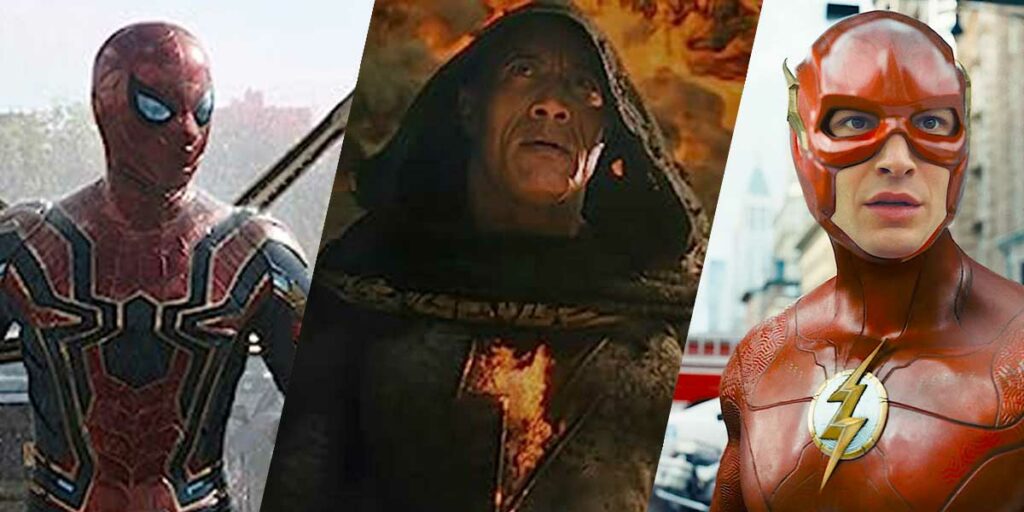Superhero fatigue in film has been hotly debated recently. But why does it exist, is it warranted, and how can it be beaten?
Let’s do something that no one on the internet has ever done: talk about superheroes. More specifically, the notion that superhero properties may have become too plentiful in the landscape of movies and television. I’ve talked about why I’ve experienced fatigue with the Marvel Cinematic Universe, but recently I’ve been thinking about how something similar could apply in a broader sense: is superhero fatigue real in film overall? Whether they’re trying to be hardened and gritty like The Batman, kooky and outlandish like Guardians of the Galaxy, or an even mix of emotional and fun like Spider-Man: No Way Home, it seems every time a comic book movie comes out nowadays, that same question keeps popping up.
Some argue that film has become way too inundated with superhero and comic book material, while others say it’s no more or less prevalent than any other popular genre. Some believe the quality of the movies on average is what matters, while others claim the quality either has gone downhill or still doesn’t justify the high quantity. It’s kind of a mess no matter how you look at it … In other words, it’s a discussion on the internet.
THE SUPERHERO FILM BOOM
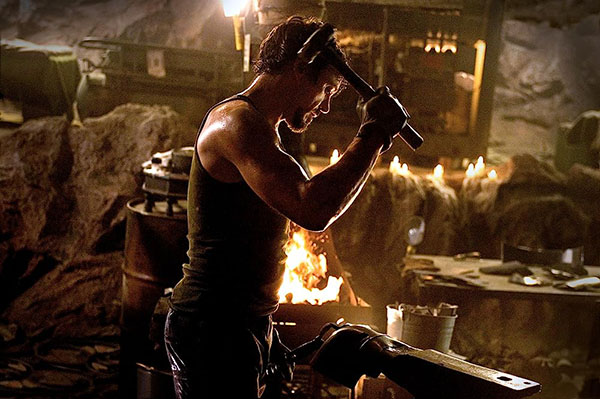
The first thing to keep in mind is that before the late 2000s, comic book movies were not nearly as common as they would become after, nor did they cover as wide a range of characters and storylines. As a result, people weren’t used to seeing superhero movies very often. A lot of that has to do with not just how many of them failed, but how noticeable those failures were because of how iconic the properties in question were. So, when we get as many of them released or even announced that we do now, I think it’s still a bit of an adjustment for people of a certain age. To go from maybe a couple of high-profile comic book films per year to now over six or seven must have been jarring to those who lived through the superhero “dark ages.” I imagine it’s a similar feeling to when Westerns were suddenly exploding, or when disaster movies saw a surge in the 90s.
But the difference with superhero movies is that they rose to dominance after such a notoriously iffy phase. There’s definitely something to be said about being grateful for how often studios, Disney/Marvel in particular, have been able to get things right over the past decade. The fear, shoddy production, and generic pandering that came with the likes of Batman and Robin, Catwoman, and Green Lantern are nowhere near as prevalent now as they were when those films came out, so I understand the desire to defend even the current movies that aren’t extraordinary, let alone the ones that are outright great. Seriously, watch any scene from Superman 4 and tell me we’re now hitting the bottom of the barrel.
WHEN NEW SUPERHERO TRICKS BECOME OLD
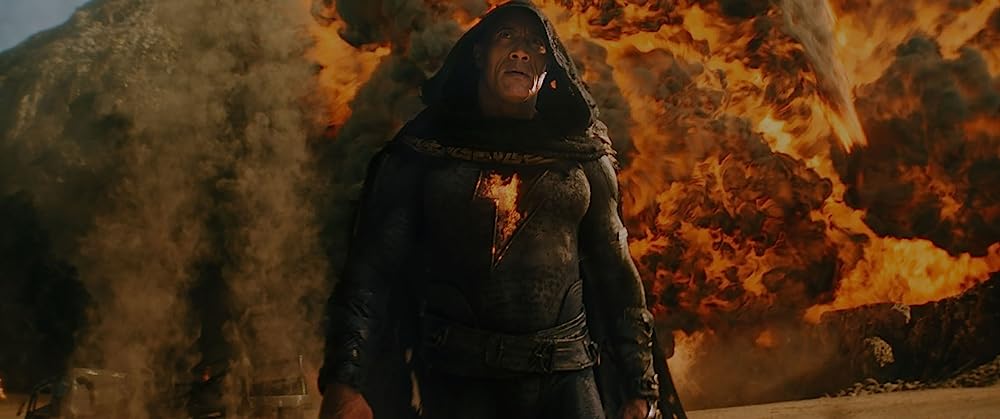
Another factor to consider is that the big superhero boom of the 2010s was many people’s first time being shown these stories at all. I didn’t know who Iron Man, Thor, Shazam, or Doctor Strange were before they made their cinematic debuts, and most audiences had never seen stories like theirs attempted on the big screen with such a high level of size and commitment. For anyone outside the comic book fandoms, seeing these big adaptations for the first time was a whole new experience that felt really special. As studios kept experimenting with style and tone like in Deadpool or Into the Spider-Verse, that freshness was maintained, and the types of stories that only a select few knew were able to thrive in the mainstream.
But now, we’ve seen them so often that it takes a lot more for them to stand out, and the superhero movies that look similar to others come across as unappealing. I still haven’t seen Ant-Man and the Wasp: Quantumania, largely because it looks like a very standard superhero tale with little new added. The same goes for Black Adam and Morbius, despite the latter’s meme status making its existence objectively worth it. Even The Flash seems to be running (I swear that was accidental) into this problem. Though there are clearly other issues at play, I think one reason for its current underperformance is that it covers a lot of ground like CGI spectacle, the multiverse, and past comic book lore that’s just not impressive to a lot of people anymore.
Yes, many comic book movies have plenty of differences in character, visuals, and tone that give the genre its variety. Not all superhero stories are the same, which is why many argue there’s no reason to be “fatigued” by how many of them there are. But really take a step back and look at how many of them, especially ones within the same cinematic universe, do share similar attributes. There’s often a character who goes from everyday life to needing to save people from a big threat, wide-scale CGI destruction, a lot of slick, modern humor, flashy moves and costumes, and setup for at least one future installment. The MCU has practically trademarked its own formula that persists no matter how much they experiment, and it would be naïve to not notice how many other superhero movies have copied that formula.
THE BEST SUPERHERO FILMS SHOULD QUELL FATIGUE … BUT THEY DON’T
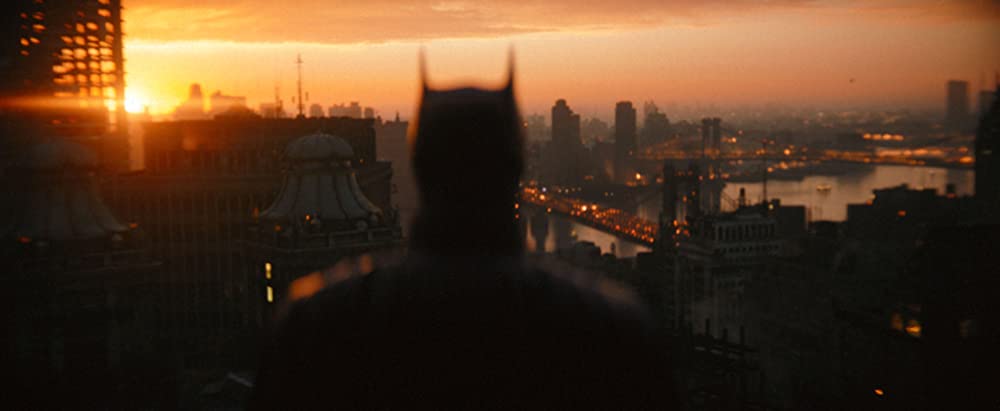
And yet, such repetitiveness just makes something like the Spider-Verse movies or The Batman stick out that much more. Even something more divisive like Zack Snyder’s DC trilogy has plenty of people – that is, sane people outside his cult of trolls and bullies – who see it as a breath of fresh air, because it has such heightened, mythical interpretations of its source material that most superhero films don’t attempt. So, there’s another knock against the notion of superhero fatigue. As I’ve said before, every genre is going to have reoccurring elements. Just because many films use them in poor or outdated ways, that doesn’t cause anyone to dismiss a whole genre as bad or excessive.
So, then … why is superhero fatigue persisting? I can definitively say it’s not a myth because, to finally lay my own cards on the table, I personally have been feeling it. As much as I still love some new superhero releases, I’ll wholly admit that there’s something about the genre at large that has me a little sick of it. It goes beyond just being underwhelmed or annoyed by a few bad or mediocre movies. The genre as a whole has been drawing an increasing level of derision from me, and I’ve found myself wishing it could be dialed back. But considering everything I’ve said so far, there doesn’t seem to be a good reason for that.
THE POPULARITY AND BAGGAGE OF SUPERHERO FILMS
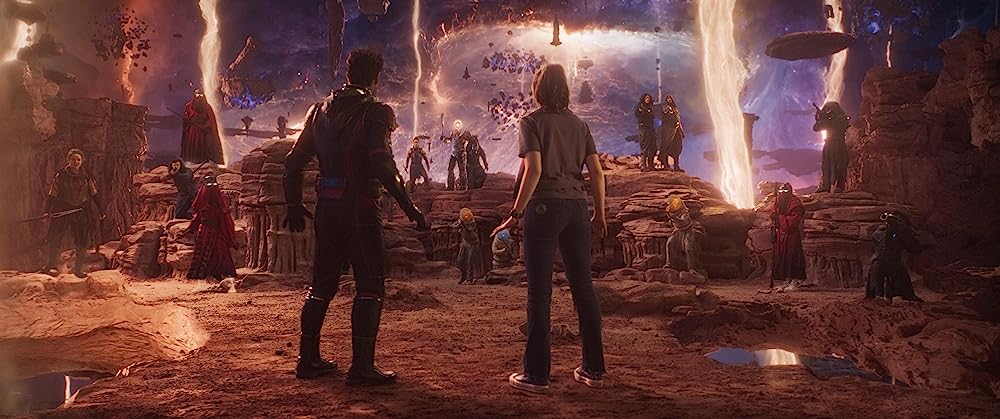
I started thinking about other genres of film that are just as common as the superhero movie, if not more so. I see plenty of horror movies each year, for example, probably more than superhero movies, but I haven’t felt any fatigue towards them. Broader action movies or comedies are the same way. Even though they’ve been popular longer, are just as common, and often have similar trends, they don’t feel nearly as overbearing to me. However, I realized, they’re also films that I don’t spend nearly as much time hearing about or discussing with others … partially because not nearly as many people have seen them in the first place.
How many groups of people could you walk up to and start a conversation about, say, The Menu? It’s got tons of acclaim and recognizable names, but I can count the number of people in my personal life who even know what it is on one hand. Meanwhile, how many people would have at least something to say about Quantumania or Shazam: Fury of the Gods? Not only have more people seen them, but even those who haven’t will likely have something to say about them. These films are linked to a franchise they’re likely familiar with, after all, and they feature characters from decades-old comics that more people may have opinions on.
In fact, there have already been discussions about superhero films that are still years away. Any time Marvel, DC, or Sony roll out their big plans for their cinematic universes, it gets people in the comic community talking, speculating, and hyper-analyzing all of the more immediate releases to see how they’ll fit into the bigger picture. Trailer reaction videos get tons of hits, spoiler discussions are far more prominent, those stupid thumbnails with red circles pop up like weeds, and those who know the comics can talk about so many details that mainstream viewers can’t keep up with. Even though superhero movies make up a small proportion of the total number of yearly films, that proportion feels so much larger. Take any one superhero movie and you’ll probably find more coverage on it than any five films from another given genre.
Even big movies like Top Gun: Maverick or Avatar: The Way of Water don’t have as much extensive coverage because … well, they’re both only the second films in their series, one of which started in the 80s. There’s not the same level of baggage from any source material or broader cinematic universe. Indiana Jones and the Dial of Destiny is obviously a big release, but it’s not like the internet has been flooded with discussions on that franchise over the past ten years. James Bond is a huge, long-running franchise, but even its movies tend to come out, warrant some discussion, and then have people move on until the next one draws near. There’s not the same level of obsession that comes with most modern comic book movies.
SUPERHERO FATIGUE COMES FROM THE CONVERSATIONS
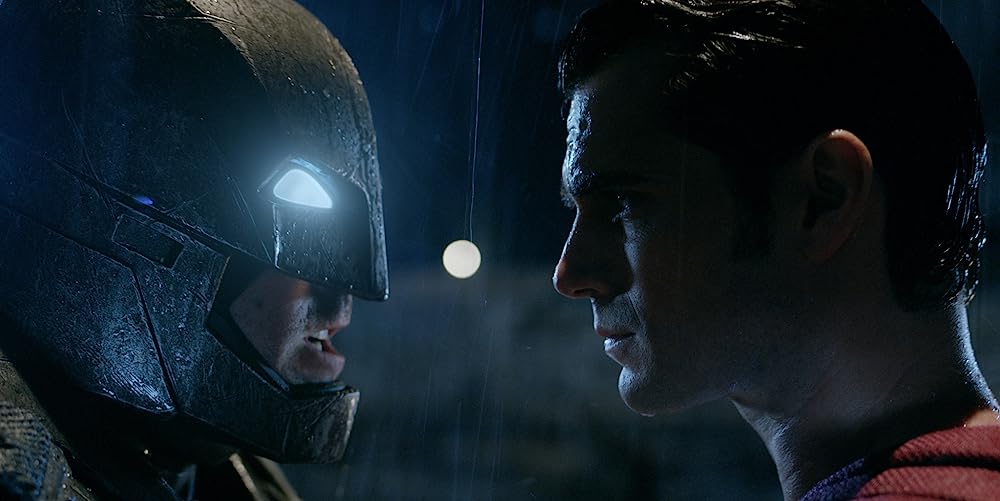
This is when it finally hit me: maybe it’s not the superhero films themselves that have people fatigued. Maybe it’s the conversations around them. Maybe it’s the fact that so many fans talk so endlessly and loudly about these movies before, during, and after their runs, making each comic book movie’s release that much more exhaustive. Don’t get me wrong: people obsessing over blockbusters is nothing new. But the chatter regarding comic book adaptations sticks out as particularly overwhelming because of how interconnected so many of them are, how often they’re compared to their source material or other iterations, and how extensively people keep track of seemingly every solitary little detail.
In my own case, part of the frustration adds to the fatigue is how frequently comic book fans bring up lore that they know like the backs of their hands, but about which I know practically nothing. A lot of the loudest opinions of superhero movies stem from what fans want or expect from the iconography that they grew up with and cherish … and then I’m over here listening to them like they’re speaking another language, wanting to just talk about the films as films. I want to talk about the characters as they are in the narrative being told, as opposed to how they fit their origins or what they “should” be. It can get aggressively alienating, making me feel like I have no place in any of the conversations and driving me further away from them.
SUPERHERO HYPE RUINS THE ELEMENT OF SURPRISE
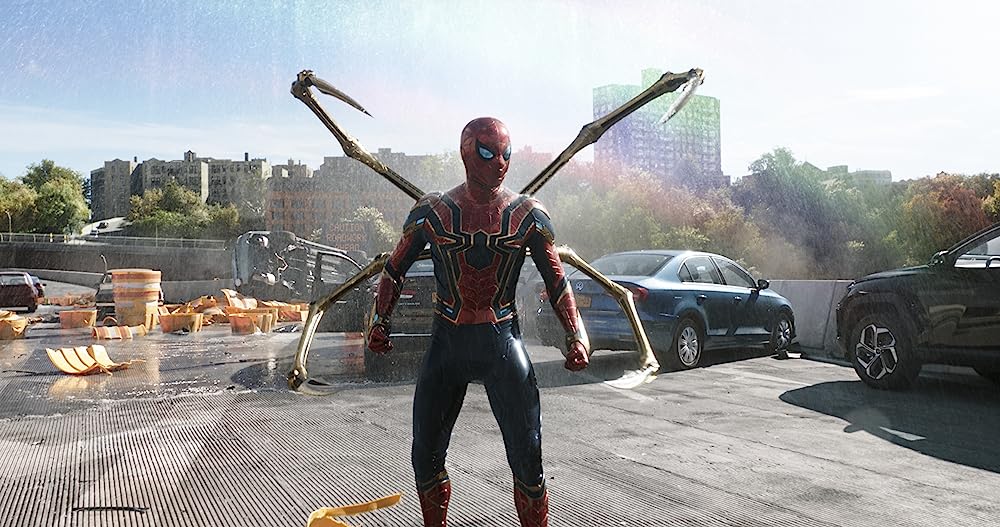
The hype-filled discussions also compromise a lot of the spontaneity I want to feel with these comic book movies. I know at least a little more of what to expect than I otherwise would because people recognize the stories being adapted and discuss their subsequent speculations. At the end of The Avengers, when Thanos was shown for the very first time, my initial thought was, “Huh, who’s that? I’m curious to learn more as the movies continue.” But then there were those who already knew who he was and talked about him as if it’s common knowledge, which ruined a bit of the mystique for me. When Captain America: Civil War was announced, the hype around it made me aware that Tony Stark and Steve Rogers would turn on each other and why … something I would’ve liked to find out on my own as the actual promotional materials came around.
That’s a big part of why I’ve come to outright dislike the need to know what the big plans are for all these cinematic universes. I wish I could just take these movies one at a time, having no idea what’s on the horizon and slowly realizing how everything ultimately connects. But instead, everyone keeps clamoring for Kevin Fiege’s outline for the MCU’s Phase 27,000, or what exactly the new DC road map is with their reset about to happen. Where’s the fun in that? It just makes these already unoriginal movies less exciting and undercuts certain surprises. I’m not saying these studios shouldn’t plan ahead. I just want to not know what the plans are.
But then again, I should expect as much from an environment that allows leaks and endless Easter egg hunts to thrive online, further sucking out the element of surprise and wonder. The leadup to No Way Home alone drives me up a wall with that sort of thing, with endless spoilers – oh, I’m sorry, “scoops” – running rampant more than a year before the movie even came out. And why did that get so out of control? Because Spider-Man is one of the biggest comic book names of all time, so of course any news about his movies is going to spread like wildfires. And, like I said, a lot of fans apparently enjoy knowing exactly what they’re going to see before they … y’know, actually see it.
THE BLURRING LINE BETWEEN FILM AND COMICS
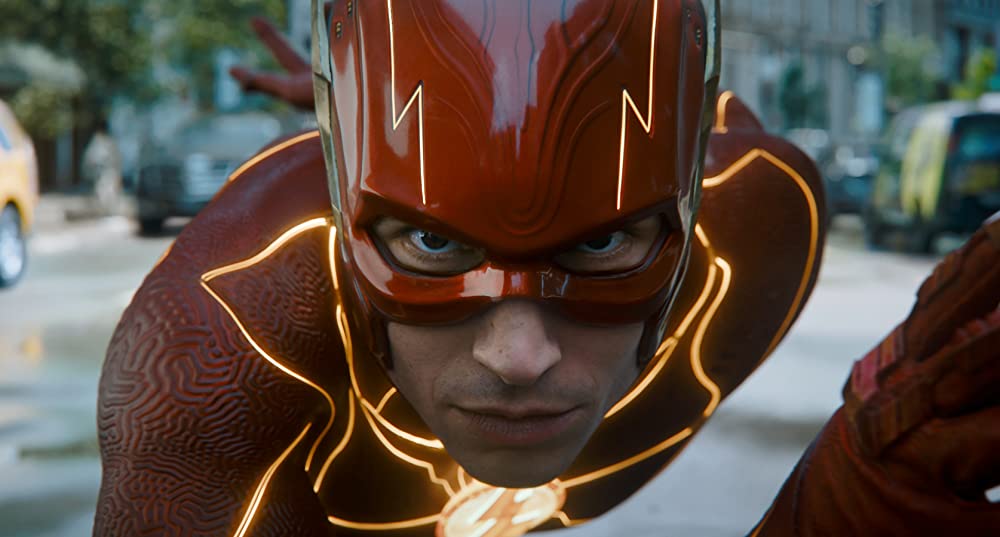
Even if I didn’t mind that sort of knowledge, I still believe it’s valid to be fatigued with shared universes in general. It was a very novel concept when the MCU first hit it big, but now that novelty has worn off. It instead feels more limiting, since every movie within a cinematic universe needs to somehow fit the larger picture, adding more baggage to each one and bringing past films back into the conversation over and over and over. Longtime comic book fans probably don’t mind this, because it makes these movies feel more like comic book issues themselves … but they’re the ones who grew up with this sort of thing, so why would they have a problem?
On that note, any time I hear someone bemoan superhero fatigue as just a myth or stupid, I’m highly suspicious that they only feel that way because they themselves have had a lifetime to love comic book stories. If all those years haven’t tainted the luster, why should it wear off for them now? The thing is, though, film is a different medium all on its own, and it used to feel that way. But with how dominant superhero discussions are even just within the medium of film, comics and movies are starting to feel indistinguishable from one another. Some may rejoice because of this. I just consider it all the more reason why the constant superhero chatter needs to take a few steps back.
I feel that way especially when the notion pops up that a superhero film doesn’t matter if it’s not leading to anything in the future. Going back to The Flash, the sentiment seems to exist among fans and even DC themselves that, because DC is about to reset its continuity, The Flash is less important a film and there’s less reason to go see it … I hate that logic. It implies that movies are only worth anything if they’re going to spawn sequels or be part of a larger universe. Not to sound like an old curmudgeon, but I miss the days when a blockbuster film could just be a film with an ending, and there wasn’t the immediate question of where the story was going to go from there. That also plays a huge role in the fatigue I and others are feeling towards superhero movies overall.
HOW TO STOP SUPERHERO FATIGUE
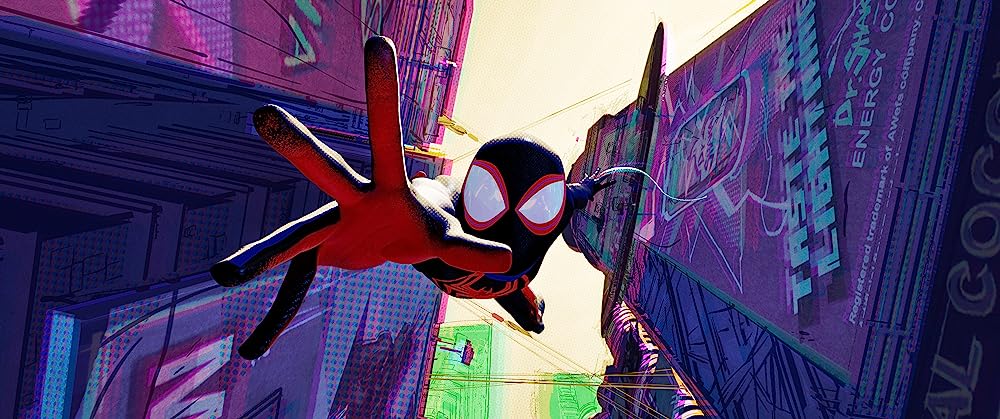
So, does all this mean I want people to just totally shut up about comic book movies altogether? Of course not. For one thing, that would mean this whole spiel of mine was a total waste of time and I’d question what I’m doing with myself. For another, I still get a kick out of discussing some of the best and most interesting comic book movies that have come out. As of right now, Across the Spider-Verse is my favorite film of 2023, and talking about it with certain individuals has been great.
I just think all of the superhero conversation needs to be dialed back somewhat. A lot of that is for purely personal, maybe even selfish reasons, like my lack of investment in the actual comics. But some of it is probably warranted on a more “objective” level for the sake of not letting the same topics and trends overwhelm the landscape. I love science fiction, but if it ended up so frequently at the center of entertainment discourse, I’d get sick of hearing about it as well. Like most good things in life, superhero stories are great in moderation. But obsessing over them like they’re the most important pieces of media is what may be causing superhero fatigue in the first place.
Unless the film is Morbius. That movie is clearly immortal and should be treated as such.

